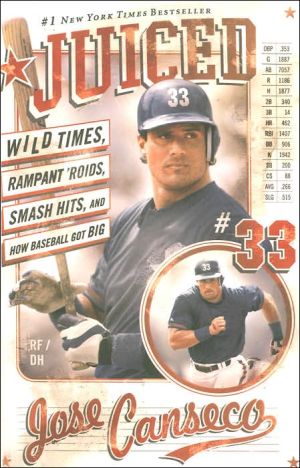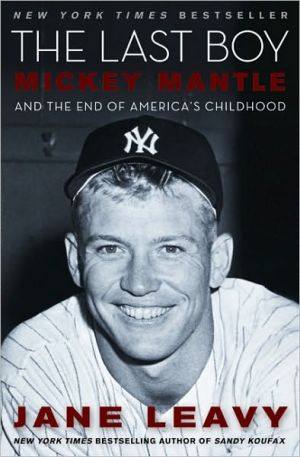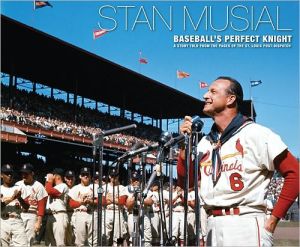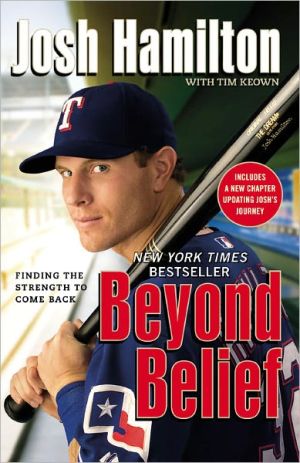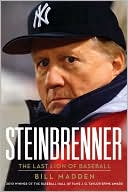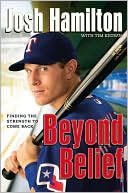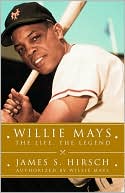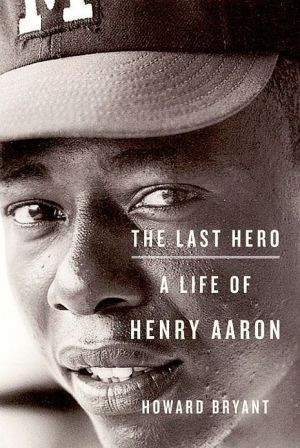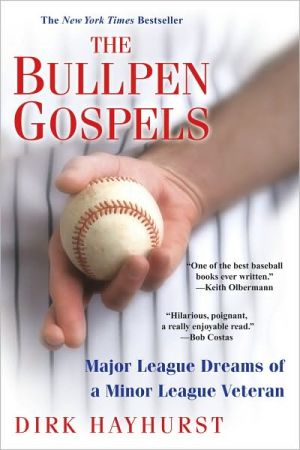Juiced: Wild Times, Rampant 'Roids, Smash Hits, and How Baseball Got Big
When Jose Canseco burst into the Major Leagues in the 1980s, he changed the sport — in more ways than one. No player before him possessed his mixture of speed and power, which allowed him to become the first man in history to belt more than forty home runs and swipe more than forty bases in the same season. He won Rookie of the Year, Most Valuable Player, and a World Series ring.\ Canseco shattered the mold of the out-of-shape baseball player and ushered in a new era of superathletes who...
Search in google:
One of the most electrifying and controversial athletes ever to step onto the baseball diamond shares the untold story of his rise to fame and fall from grace, including a never-before-seen look behind the curtains into the history, dangers, truths, and lies about baseball's dark secret: steroids. When Jose Canseco burst into the Major Leagues in the 1980s, he changed the sport-in more ways than one. No player before him possessed his mixture of speed and power, which allowed him to become the first man in history to belt 40+ home runs and swipe 40+ bases in the same season. He won the Rookie of the Year, the MVP award, and a World Series ring. He was a dynamo on the field, and a magnet for trouble off it. From his frequent run-ins with police, to his wild and often highly public love life, Canseco broke the mold of the big-time athlete and ushered in a new era of super-athletes with outrageous salaries and rock-star lifestyles. But behind the gaudy stats and the glitz and glamour of his public life, Canseco cultivated a dark secret, one that would alter the game of baseball and the way we view our heroes forever. Canseco made himself a guinea pig of the blossoming performance-enhancing drugs movement that was only just beginning to take hold in Major League Baseball. Anabolic steroids, human growth hormones-Canseco mixed, matched, and experimented to such a degree that he became known throughout the league as "The Chemist." He passed his knowledge on to trainers and fellow players, and before long performance-enhancing drugs were running rampant throughout the league. Today, this issue has crept out of the closet and burst into the headlines as players balloon to herculean proportions and hundred-year-old records are not just broken, but demolished. In this shocking autobiography, Canseco sheds light on a life of dizzying highs and debilitating lows-and also provides the answers to questions about steroids and the Major Leagues that millions of sports fans are only now beginning to ask.
Juiced\ Wild Times, Rampant 'Roids, Smash Hits, and How Baseball Got Big \ \ By Jose Canseco \ HarperCollins Publishers, Inc.\ Copyright ©2006 Jose Canseco\ All right reserved.\ ISBN: 0060746416 \ \ \ Chapter One\ "You'll Never Add Up to Anything"\ I always told Jose and Ozzie,\ "Do better next time."\ I'm obviously a very serious man.\ I never fool around with anything.\ But I was never stern or a dictator.\ Jose Canseco Sr.,\ My father\ My dad earned a good living in Cuba during the Batista years, working as a territory manager for Esso Standard Oil. He also picked up a little extra cash working nights as an English teacher at the Professional School of Commerce in Havana. He worked hard and was a good provider for our family. As soon as Fidel Castro came to power in 1959, though, my father was smart enough to know that before long the new leftist system would control the entire country, and that would not be a good thing for people like my father. He figured that everything he had worked for in Cuba would be lost, and he was right, too. Soon after Castro came to power, my father lost his job. Then he lost his house. And then his car.\ He was in an unusual position in that he had already spent time in the United States studying English. He had gone to Shreveport, Louisiana, as a teenager and lived with an uncle there forseveral years, starting in 1940, and his time in American schools gave him enough of a grounding in the language to teach it in Cuba. As much as he would have liked to stay in Cuba, his country, he was also comfortable with the idea of diving into a new life in the United States -- if that was his only choice.\ So my father notified the Cuban government that he wanted to leave the country, and the government basically answered: Tough luck. There was a serious shortage of skilled professionals, and Castro could not afford to lose white-collar workers like my father. The government announced that such workers would only be allowed to emigrate if a specific replacement could be found to handle their particular job. But no one was available who was qualified to take over my father's job with the oil company. The government wrote him a letter saying that because of his professional ability and expertise, he was not allowed to leave the country until further notice. He would have to wait years for them to change their minds.\ My dad was born in 1929, in a town called Regla, on the outskirts of Havana. Both my father's parents had come over from Spain and his father, Inocente, had a big, light-green Packard car that he used to earn a good livelihood. He would load six or seven tourists into the Packard and drive them all over the place showing them the sights of Havana. Back then, baseball and boxing were the top sports in Cuba. My dad used to listen to New York Yankee games on the radio; his favorite players were Babe Ruth and, later, Roger Maris and Joe DiMaggio. But my father was not much of a baseball player himself. He shagged a few balls when he was a boy, but that was about it.\ My father met my mother, Barbara, when they were both teenagers in Regla. He had come back from Louisiana and was studying at the Institute of Havana, from which he graduated with a degree in English. They used to go ballroom dancing or take strolls together around the town's central park. Sometimes they would go to the movies to catch the latest Errol Flynn picture or sweeping sagas like Gone With the Wind.\ My parents and older sister, Teresa, were living in Regla in July 1964 when my mother gave birth to me and my twin brother, Osvaldo. People like to say that Ozzie and I were like pocket-sized atom bombs when we were babies, but my father says we were actually nice and quiet. People were always fussing over us. They usually had trouble telling the two of us apart because we looked the same and were the exact same size and weight. But I had a birthmark on the back of my hand, so that helped family members know which of us was which.\ Those were bad times to be living in Cuba, especially since the government knew my father did not support their system. My father had to wait until the year after Ozzie and I were born for a chance to leave. The Castro government announced in 1965 that it would allow an airlift of people from Varadero, Cuba, to Miami. Ozzie and I were just babies when my parents took us and Teresa to the airport, where we climbed into a small propeller plane. There was only room for about twenty people inside, and apparently it was stuffy. I don't remember any of that, but it was an important day for the family and we heard about it later.\ "It was very, very hot inside the plane,"my father used to tell us, looking back on that momentous day.\ He would always tell us how sad he was, leaving behind his home country and his parents, and the rest of his family. But he knew he had to do it, and he was eager to start a new life, making the most of his knowledge of English. We were also lucky to have family members living in south Florida, ready to help us out. My Aunt Lilia was there at the airport, waiting to meet us, but first my parents had to go through an inspection. They had no money or identification, but they stripped my father and searched him, and then stripped my mother and searched her, too.\ "We had nothing,"my father would tell us.\ But he had English, and the work experience to land a good job soon after he arrived in America. He found work as a territory manager for Amoco Oil, which was a good position, but to him it was only a start, and he was always looking for other ways to bring in extra income ...\ \ Continues... \ \ \ Excerpted from Juiced by Jose Canseco Copyright ©2006 by Jose Canseco. Excerpted by permission.\ All rights reserved. No part of this excerpt may be reproduced or reprinted without permission in writing from the publisher.\ Excerpts are provided by Dial-A-Book Inc. solely for the personal use of visitors to this web site. \ \
